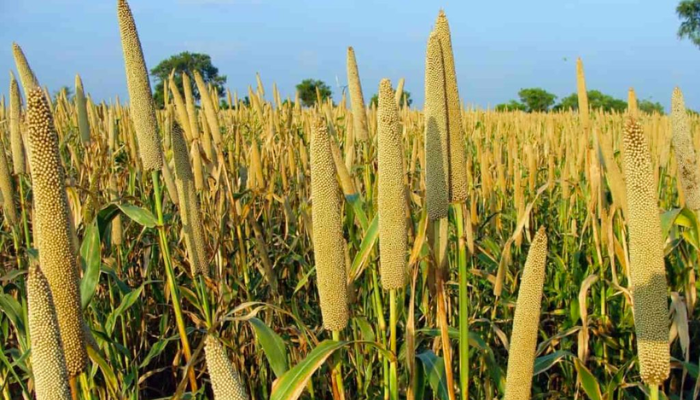In recent years, there has been a growing interest around the revival of traditional and nutritious crops worldwide. One of such crops that has been gaining recognition for its immense potential is millet.
These ancient grains are drought-resistant, highly nutritious, and require minimal inputs, making them ideal for cultivation in arid and semi-arid regions like Nigeria but the crop potential in the country’s agricultural value chain remains largely untapped.
Apart from being resilient and climate-resistant crop, millet holds incredible nutritional value and has been proved to be beneficial for human health. In Nigeria, millets include varieties such as pearl millet (dakuwa), finger millet (kurmi), and fonio (acha). These grains are rich in protein, fiber, vitamins, and minerals, making them an ideal dietary option that can be found in Fura, Kunu, towo, bread, fermented beverages and lots more.
According to experts, millets have a low glycemic index, making them suitable for managing diabetes and related health conditions.
Despite their immense nutritional benefits, millets have not received adequate attention in Nigeria’s agriculture sector. As a result, their potential economic benefits remain largely untapped.
Nigeria could unlock a range of economic opportunities in the value chain and local farmers, who are often subsistence-based can diversify their income by growing and selling millets.
Similarly, enhanced cultivation and processing methods, coupled with favorable policies and investment can boost productivity and create employment opportunities across the value chain.
Moreso, Nigeria faces numerous challenges in the realm of food security and nutrition. Given the rich nutritional content of millets, integrating them into the national diet can play a significant role in addressing these challenges.
It’s in the wake of these enormous untapped potentials in the millet value chain that the United Nations General Assembly at its 75th session in March 2021 declared 2023 as the International Year of Millets. (IYM 2023). The declaration kick-start an opportunity to raise awareness of and direct policy attention to the nutritional and health benefits of millets and their suitability for cultivation under adverse and changing climatic conditions.
According to the Food and Agriculture Organisation of the United Nations (FAO ), IYM 2023 hopes to galvanise interest in millets among various stakeholders like farmers, the youth and civil society and push governments and policy makers to priorities the production and trade in these cereals.
The collaboration which began with seminar in Abuja last week, brought key players together to mark 2023 as the International Year of Millets with the theme, “Rich in Heritage, Full of Potentials”.
According to FAO representative in Nigeria and ECOWAS, Fred Kafeero, the collaborative efforts throughout this year will focus on raising awareness about the multiple benefits of millets, sharing best practices and innovative approaches for millet production and utilisation, and fostering public-private partnerships to enhance value chains and market access for millet farmers.
He said in the process,women and youths will be empowered in recognising their pivotal role as agents of change in the agricultural sector.
He said, “As we embark on this journey together, I want to recognise the role of collective action, knowledge sharing, and inclusive partnerships, together, we can transform the narrative surrounding millets, elevating them from being a mere staple to a strategic crop that contributes to the achievement of the SDGs.
At FAO we want to reaffirm our commitment in offering technical assistance to GoN in its efforts to promote the cultivation, consumption, and commercialization of millets. Together with all of you, and with renewed enthusiasm and determination, there is no doubt we will, harness the potential of millets to combat hunger, malnutrition, and the challenges posed by climate change”.
The permanent secretary, ministry of agriculture and rural development, Dr Ernest Umakhihe said efforts are underway to promote iron-biofortified pearl millet, which provides a convenient and affordable source of iron for people.
Represented by B.C Ukatta, the Perm Sec pointed out that the significant step is in need to address nutritional deficiencies and improving the overall health and well-being of Nigerians.
In a united front in favour of millet value chain development, Nigeria can provide incentives, training, and access to finance, the government can also encourage smallholder farmers to adopt millet cultivation and collaborations with research institutions and extension services can enhance technical knowledge dissemination, empowering farmers with up-to-date information on millet production and management practices.
This means that the untapped potential of millets in Nigeria’s agricultural landscape holds great promise for sustainable development. By recognizing the value of these resilient and nutritious grains, Nigeria can harness their potential to improve food security.





